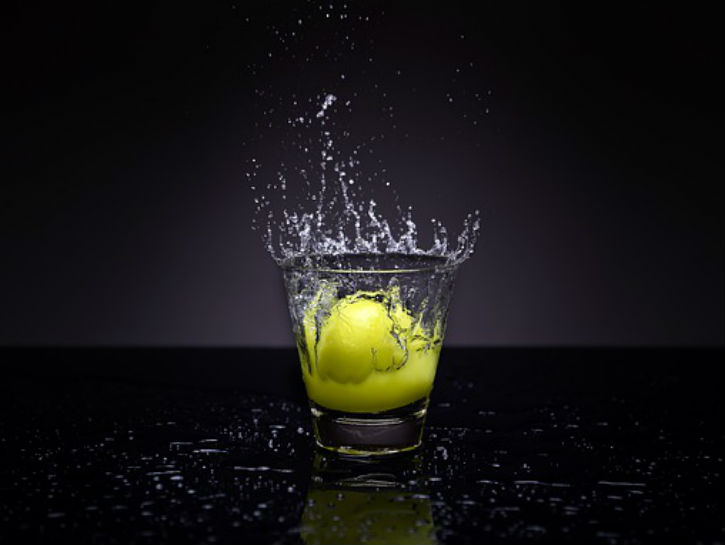Adding lemon to your soda, tea, or water can give your drink a pop of extra flavor. But you shouldn’t request lemon slices in your drink at a restaurant. According to two separate studies, the lemon slices served at restaurants are contaminated with viruses and bacteria, and if you have a compromised immune system, you should be extremely cautious.
Back in 2007, a study published in the Journal of Environmental Health looked at 76 lemon slices from 21 different restaurants collected over a period of 43 visits, and the results were disturbing. Nearly 70 percent of the lemon samples the researchers swabbed had some microbial growth on the rind, the flesh, or both, and all of the lemons had the potential to cause disease.
The researchers collected the samples as soon as the lemons were served, before any drinking or touching. They could not determine the origins of the microorganisms, but the researchers speculated that they could have come from raw meat, poultry contamination, or restaurant employees.

“Although lemons have known antimicrobial properties, the results of our study indicate that a wide variety of microorganisms may survive on the flesh and the rind of a sliced lemon,” the authors wrote in their report. “Restaurant patrons should be aware that lemon slices added to beverages may include potentially pathogenic microbes.”
Clemson University researchers revisited this in 2017, and they found that wet lemons absorb bacteria 100 percent of the time. Dry lemons only absorb bacteria 30 percent of the time, but ice will pick up bacteria 83 percent of the time. The Clemson food scientists believe the contamination comes from cutting boards, hands, and utensils.
If you are thinking that the lemons at a self-service drink station are a better option, think again. The Clemson researchers found that those lemons are even more likely to be contaminated, since not only are they exposed to bacteria while being chopped, but customers can spread bacteria to them as well. And if the lemons are not being kept at the right cold temperature, an E. coli infestation can occur.
When it comes to alcoholic beverages, the lemon garnish isn’t any safer. Research shows that most bacteria can survive in most cocktails — including an 86-proof tequila.

To make matters worse, in a 2012 experiment commissioned by ABC News, Dr. Philip Tierno, a professor of microbiology and pathology at New York University’s Langone Medical Center, found that lemon wedges were the third germiest place in a restaurant. In his test results, one of the most frequently occurring contaminants was fecal matter, with over half of the lemon wedges being tainted with human waste.
All of these results are pretty gross, but will a lemon from a restaurant really make you sick? Tierno says the risk is small, but distinct. He says these lemon wedges will probably not result in any kind of infection, but there is always a possibility. If you have a healthy immune system, you will probably be able to fight off the bacteria. But if your immune system is compromised, be careful.

If you must have lemon slices with your drink, be aware that restaurant conditions are not ideal. Take a look at the people handling your food and beverages, and if you see someone handling the lemon wedges with their bare hands, you’ll probably want to pass.
Even if the workers use gloves or tongs, you can always ask for your lemon wedges on the side, and then squeeze them into your glass instead of dunking the entire wedge.
